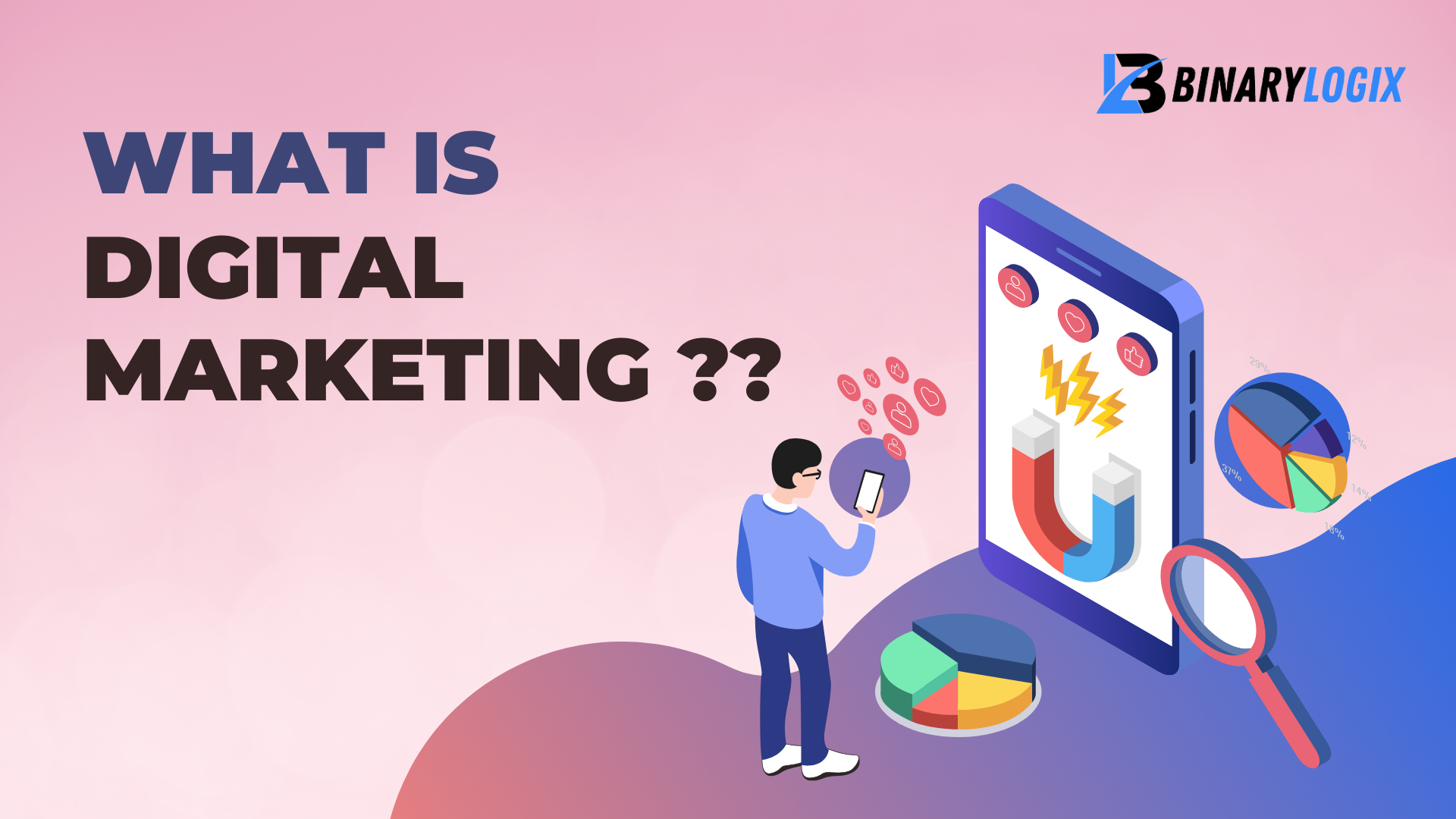What is Digital Marketing ?
In today’s interconnected world, businesses are constantly looking for innovative ways to reach their audiences. Digital marketing has emerged as a powerful and essential strategy for engaging with potential customers in the online space. But what exactly is digital marketing? Let’s dive into its meaning, importance, and how it works.
Definition of Digital Marketing
Digital marketing refers to the use of digital channels and tools to promote products, services, or brands. These channels include websites, social media, search engines, email, and mobile apps. Unlike traditional marketing, which relies on physical mediums like newspapers or billboards, digital marketing leverages the internet and electronic devices to connect with consumers in a more interactive and measurable way.
Key Components of Digital Marketing
- Search Engine Optimization (SEO): SEO involves optimizing your website to rank higher in search engine results pages (SERPs). This improves visibility and drives organic traffic to your site.
- Content Marketing: This focuses on creating valuable and relevant content to attract and engage your target audience. Examples include blogs, videos, infographics, and eBooks.
- Social Media Marketing: Platforms like Facebook, Instagram, LinkedIn, and Twitter are used to build relationships with audiences, share content, and drive traffic to your website.
- Pay-Per-Click Advertising (PPC): PPC is a paid advertising model where businesses pay a fee each time their ad is clicked. Google Ads and Facebook Ads are popular examples.
- Email Marketing: Sending personalized emails to a list of subscribers to nurture relationships, promote products, or share updates.
- Affiliate Marketing: Partnering with affiliates who promote your products or services in exchange for a commission on sales.
- Influencer Marketing: Collaborating with influencers who have a strong following to promote your brand to their audience.
- Analytics and Data: Measuring and analyzing performance through tools like Google Analytics to refine strategies and improve results.
Why is Digital Marketing Important?
- Global Reach: Digital marketing breaks geographical barriers, allowing businesses to reach audiences worldwide.
- Cost-Effective: Compared to traditional advertising, digital marketing is more affordable and offers better ROI (return on investment).
- Targeted Advertising: Advanced targeting options allow businesses to reach specific demographics, interests, and behaviors.
- Interactive Engagement: Digital platforms provide opportunities for two-way communication, enhancing customer relationships.
- Measurable Results: Tools and metrics make it easier to track the success of campaigns, ensuring better decision-making.
How Does Digital Marketing Work?
Digital marketing works by leveraging online platforms to deliver tailored messages to the right audience. Here’s a simplified process:
- Identify Goals: Define what you want to achieve — whether it’s brand awareness, lead generation, or sales.
- Know Your Audience: Understand your target audience’s needs, preferences, and online behavior.
- Choose Channels: Select the digital platforms that align with your audience and goals.
- Create Content: Develop engaging and valuable content that resonates with your audience.
- Launch Campaigns: Use tools and platforms to distribute your content and ads.
- Monitor and Optimize: Continuously analyze performance and refine strategies for better results.
Conclusion
Digital marketing is no longer a choice but a necessity for businesses in the modern era. By leveraging its various components effectively, you can build a robust online presence, engage with your audience, and achieve your business goals. Whether you’re a small startup or a large corporation, digital marketing provides endless opportunities to grow and succeed.


